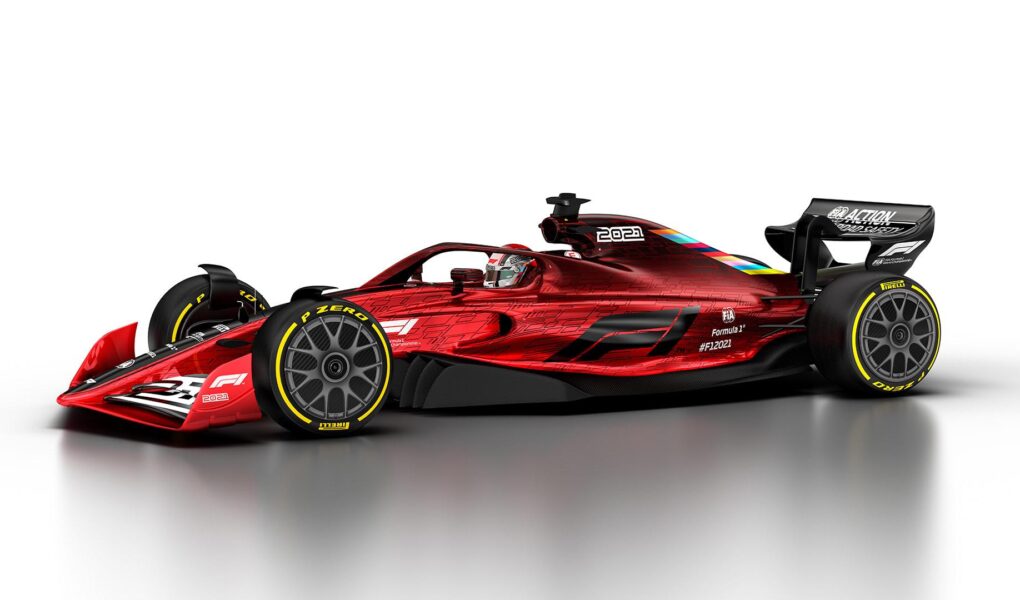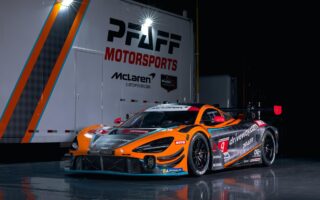Title: The Price of Precision: Understanding Formula Car Costs
In the high-octane world of motorsport, where speed and innovation collide, the allure of formula cars captivates the imagination of enthusiasts and professionals alike. These engineering marvels, meticulously designed for both agility and performance, remain a pinnacle of automotive excellence. However, beneath the gleaming exteriors and roaring engines lies a complex financial landscape shaped by a myriad of factors. From the cutting-edge technology that fuels their performance to the intricate designs that ensure driver safety, the price tag on these race-ready machines can vary dramatically. In this article, we delve into the myriad influences that determine formula car prices, unraveling the costs associated with ownership, maintenance, and the relentless quest for competitive edge in the racing arena. Whether you’re an aspiring driver, a seasoned competitor, or merely a curious observer, understanding the economics behind formula cars offers valuable insight into a world where every dollar counts in the race for victory.
Table of Contents
- Understanding the Factors Influencing Formula Car Prices
- Comparing New vs. Used Formula Cars: Which Is the Best Investment
- Navigating Additional Costs Beyond the Initial Purchase
- Tips for Making Informed Buying Decisions in the Formula Car Market
- Q&A
- Wrapping Up
Understanding the Factors Influencing Formula Car Prices
When considering the pricing of formula cars, several elements come into play, shaping the overall market value. Manufacturing Quality is paramount; cars built with superior materials, like carbon fiber and advanced alloys, tend to command higher prices due to their performance and durability. Additionally, technology integration plays a crucial role. The latest advancements in aerodynamics, engine efficiency, and telemetry systems not only enhance racing capabilities but also elevate the cost. Factors such as brand reputation and team history in motorsport further influence pricing, as well-established teams with successful track records often see their vehicles priced at a premium.
Another significant factor is the vintage and rarity of the formula car; limited edition models or ones with historical significance can skyrocket in price among collectors. In the dynamic world of motorsports, economic factors cannot be overlooked either. Market demand, which fluctuates based on current sports trends and fan engagement, directly impacts pricing. The table below summarizes key factors affecting formula car prices:
| Factor | Impact on Price |
|---|---|
| Manufacturing Quality | High |
| Technology Integration | High |
| Brand Reputation | Moderate to High |
| Vintage and Rarity | Very High |
| Market Demand | Variable |
Comparing New vs. Used Formula Cars: Which Is the Best Investment
When considering the purchase of a Formula car, potential buyers are often torn between the allure of a brand new model and the appeal of a seasoned used vehicle. New Formula cars typically come equipped with the latest technology, superior performance capabilities, and shiny aesthetics that can turn heads on the racetrack. However, they often carry a hefty price tag, making a significant dent in your wallet. Furthermore, as with many new cars, the rapid depreciation means that their value drops dramatically once you drive them off the lot. This could lead to an unwise financial decision if you aren’t planning to utilize the car regularly for racing or events.
On the other hand, investing in a used Formula car presents a variety of advantages that could make it a smarter choice for many racers. The initial cost is usually lower, allowing for potential savings that can be allocated to upgrades or maintenance. Additionally, many used cars have already experienced the steepest part of their depreciation curve, maintaining their value better over time. Here’s a quick comparison of factors to consider when deciding:
| Aspect | New Formula Car | Used Formula Car |
|---|---|---|
| Price | High initial cost | More affordable |
| Depreciation | Rapid depreciation | Slower depreciation |
| Technology | Latest advancements | May lack latest features |
| Maintenance | Under warranty | Potentially higher maintenance costs |
Navigating Additional Costs Beyond the Initial Purchase
When considering the acquisition of a formula car, it’s vital to remember that the purchase price is just the starting point. Ownership entails a series of supplementary expenses that rapidly accumulate. These costs may include, but are not limited to:
- Maintenance and Repairs: Formula cars require high-frequency servicing to perform optimally, which can lead to substantial yearly expenses.
- Insurance: Given the performance and value of these vehicles, insurance premiums can be shockingly high.
- Fuel: The specialized fuel required for these cars can be significantly more expensive than regular gasoline.
- Transport: If you plan to take your car to races or events, transport costs can quickly add up, especially if professional logistics services are involved.
Another important aspect to consider is the financial commitment associated with upgrades and customization. Many enthusiasts invest in enhancing performance and aesthetics, which can include tuning, improved aerodynamics, and custom paint jobs. Here’s a concise table showcasing potential upgrade costs:
| Upgrade Type | Estimated Cost |
|---|---|
| Engine Tuning | $5,000 – $15,000 |
| Suspension Upgrades | $3,000 – $10,000 |
| Aerodynamic Kits | $1,500 – $7,000 |
| Interior Customization | $2,500 – $8,000 |
Tips for Making Informed Buying Decisions in the Formula Car Market
When diving into the world of formula cars, a thorough understanding of various factors can significantly impact your purchase decision. Start by researching the market trends and previous sales of similar models. Consider these points before making a commitment:
- Model History: Investigate the performance and reliability of the model over the years.
- Ownership Costs: Factor in maintenance, insurance, and potential repair costs.
- Resale Value: Assess how well the car holds its value over time to ensure a wise investment.
It’s also beneficial to connect with previous owners or enthusiast communities. Their insights can offer invaluable information that goes beyond mere specifications. Here are some essential questions to ask:
- What issues have you faced? This helps highlight any common concerns.
- What modifications have you made? Understanding enhancements can influence your choice.
- Why are you selling? The reason behind the sale can often reveal the car’s true condition.
| Aspect | Consideration |
|---|---|
| Budget | Set a clear budget including all ancillary costs. |
| Inspection | Always get a professional inspection before purchasing. |
| Test Drive | Ensure you can experience the car’s performance firsthand. |
Q&A
Q&A: Understanding Formula Car Prices
Q1: What factors influence the price of a formula car?
A1: Several factors contribute to the pricing of formula cars, including the car’s age, brand, model, and performance specifications. Technological advancements, such as engine power and aerodynamics, also play a significant role. Additionally, the rarity of the vehicle, historical significance, and the demand within the racing community can dramatically impact prices.
Q2: How do the prices of new formula cars compare to used ones?
A2: New formula cars can range from several hundred thousand to multiple millions of dollars, depending on the series and specifications. Used formula cars, however, offer a range of prices based on condition, history, and upgrades. While buying used can significantly reduce costs, it’s vital to consider ongoing maintenance and performance enhancements.
Q3: Are there affordable options for aspiring racers?
A3: Yes, there are more affordable entry-level formula racing series that cater to aspiring drivers. These vehicles can be less expensive, often priced in the range of tens of thousands of dollars. These formulations often serve as stepping stones to higher-level competitions, providing an excellent opportunity to gain experience without breaking the bank.
Q4: What maintenance costs should buyers consider?
A4: Maintenance costs can be substantial, regardless of whether you buy new or used. Formula cars require regular servicing, which includes tire replacements, engine servicing, and occasional repairs after races. Enthusiasts should budget for ongoing costs that could range from a few thousand to tens of thousands of dollars annually, depending on the vehicle’s usage and racing frequency.
Q5: Is it possible to finance a formula car purchase?
A5: Financing options are available, but they may differ significantly from standard automotive loans due to the specialized nature of racing vehicles. Potential buyers can explore financing through specialty lenders or racing organizations, but it is advisable to have detailed financial plans, as interest rates may vary based on the car’s value and intended use.
Q6: How does participation in a racing series impact the overall cost of owning a formula car?
A6: Joining a racing series typically incurs additional expenses, including entry fees, logistics for transporting the car, and the costs associated with a pit crew. These expenses can accumulate quickly, so prospective owners must weigh them in their overall budget. Party to a series can enhance driving skills and provide valuable racing experience, justifying the added costs for many.
Q7: What should be considered before purchasing a formula car?
A7: Buyers should assess their goals—whether it’s for personal enjoyment, competition, or investment. It is also crucial to have a solid understanding of the car’s upkeep needs, the budget for racing events, and the rules and regulations of the racing series they intend to join. Consulting with current owners or industry experts can provide vital insights and help inform a prudent purchasing decision.
Q8: Can you provide examples of premium brands and their typical price ranges?
A8: Premium brands in the formula racing sector, such as Formula One constructors, can command staggering prices—often starting at around $2 million for entry-level cars and soaring to $10 million or more for top-of-the-line models. Brands like Dallara, Mygale, and Ligier offer vehicles from approximately $50,000 to $300,000, catering to a wider audience while still delivering thrilling performance on track.
Q9: why is understanding formula car prices essential for potential buyers?
A9: Understanding formula car prices is crucial for potential buyers as it helps them make informed decisions, tailor budgets, and identify the right type of vehicle that aligns with their racing aspirations. Knowledge of market trends, while considering all associated costs, can empower future racers to enter the sport efficiently and effectively, ensuring a rewarding experience on and off the track.
Wrapping Up
As we conclude our exploration of formula car pricing, it’s clear that the world of motorsport is a dynamic landscape where engineering excellence meets economic realities. From the budget-conscious enthusiasts seeking entry-level options to the elite teams investing millions in cutting-edge technology, the price of a formula car reflects not just the machine itself but the aspirations of those who dare to compete.
While factors such as brand prestige, technological advancements, and market demand play pivotal roles in shaping these costs, the passion for speed and precision remains a driving force for many. Whether you’re an aspiring racer, a curious spectator, or an industry insider, understanding the intricate balance of cost and capability is essential in this thrilling domain.
As the engines roar back to life on racetracks around the world, the price of a formula car continues to evolve, mirroring both the advancements in automotive engineering and the changing tides of the motorsport industry. Whatever your interest may be, staying informed about these trends ensures you’re never just a spectator in the fast lane.



